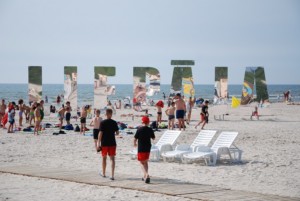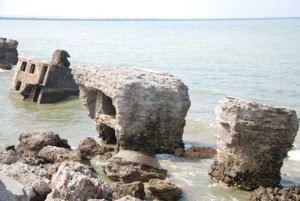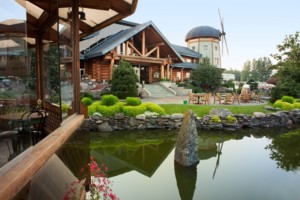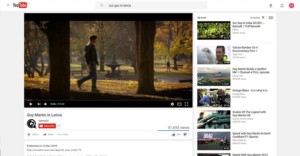Latvians are a musical people and are often credited with regaining their independence via a ‘singing revolution’ when thousands of people demonstrated against the Soviet regime by peacefully singing patriotic songs. This is after all the land of the massive song festival held every five years where 30,000 participants sing in unison dressed in folk costumes. Latvia is the birthplace of conductor Andris Nelsons of the Boston Symphony Orchestra and opera stars Inese Galante, Elīna Garnča and Kristine Opolais as well as violinist Gidon Kremer, but also of iconic 1980s rock bands like Līvi, Pērkons and Jumprava that sang songs of freedom to a nation stuck behind the Iron Curtain. Given all this, it comes as no surprise that Riga has no shortage of live music venues, but in the summer a growing number of establishments also host free outdoor concerts.
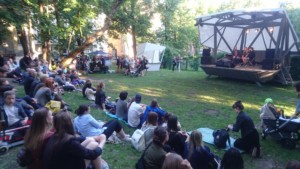
One of our favourite places to see live local bands is the Von Stritzky Villa, which is a shabby manor not far from Riga’s main hipster street, Miera iela. Although the building was no doubt the pinnacle of luxury when it was inhabited by the beer magnate Von Stritzky back in the 19th century, the years have not been kind to its classical interior, but none of the alternative folks who attend the concerts, beer festivals and similar events held here seem to mind, including us.
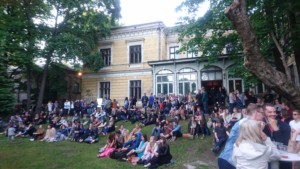
This summer, the Villa hosts free outdoor concerts by local artists every Wednesday from 19:00. One, of course, has to keep in mind that this means that the music begins around an hour later, but the sooner you get here the faster you can pick a good spot on the lawn with a good view of stage. We recommend you bring a blanket or beach chairs as no proper seating is really available. However, there’s plenty of food and drink to be had here and we were actually shocked by what was on offer. Were it not for the ever-present shadow of the forlorn manor behind us we might have believed we were attending a posh event in Central Park or maybe the Hamptons. One stand poured local brews, another mixed cocktails and one sold chilled wine, prosecco and (gasp!) fresh oysters.
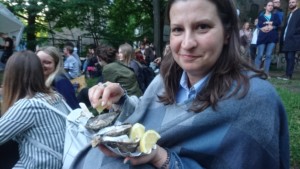
If that weren’t odd enough for Riga, yet another stand manned by two Israelis specialised in falafel sandwiches and hummus. Incredible! If, however, you’re thinking that it’s not a proper event without good coffee, then just head inside to the main bar where you can get pretty much anything you need. The restrooms are also inside, although we have to admit that we headed over to the nearby craft brewery Labietis to make use of their loo. It’s also a great place for a drink before and/or after the concert.
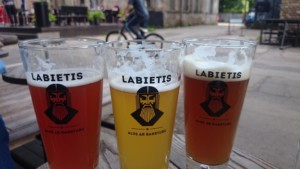
Sadly, summer is coming to a close, so there will only be a few more concerts on offer here including local world music group Regīna (August 9), folk music group Tautumeitas (August 16), Latvian idie group Sigma (August 23) and local punk legends Inoketijs Mārpls (August 30). On a final note, if there’s heavy rain they move everything indoors. For more live music suggestions read our Live Music feature and for other events in Riga visit our What’s On section on our website and scroll to it in our app.

